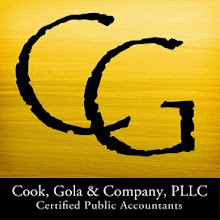…….Or, beware of what you seek
I have been out of the Blog circuit for a couple of weeks. We moved our San Antonio offices to 45 N E Loop 410, Suite 210. San Antonio National Bank is the anchor tenant. Moving was a bear. The actual move went off relatively well save a broken picture frame and a dropped table. Getting everything setup and operational took two weeks. Finally, after a full weekend of hanging pictures, relocating desks and tinkering with the computers, we are good to go.
As I noted in my last blog, the IRS is the largest, most powerful collection agency in the world. The monster is alive and well. The Service has become very active in the auditing and monitoring of businesses that do not pay their payroll taxes and properly report their contract labor.
We have just completed a payroll tax audit with one of our clients. A client, I might add that tries very hard to comply with every rule, no exceptions. Most businesses really don’t understand payroll taxes so even if they try to comply, there are still issues. Typically, they don’t know what “pay items” are subject to payroll taxes. Every year small business owners bring in their work, usually on Quickbooks, for us to prepare their tax returns. I will scan the general ledger and find checks labeled “Bonus” or “Commission”. The business owner generally will treat these as separate checks. They don’t take any payroll taxes out, nor do they pay TWC (Texas) taxes. For some unknown reason, business owners think that by renaming an item that you change its character. This is not true. Any moneys paid to an employee are considered compensation.
Sometimes part of the compensation is not taxable. This would be the case when an employee is being reimbursed for out-of-pocket expenses. There also could be retirement contributions that are not subject to federal payroll taxes. It doesn’t take an IRS examiner long to find “Bonuses” and “Commissions”.
The big thing that came out of the audit, however, was the Service’s aggressive position on “Contract Labor”. Briefly, contract labor is a service provided by an independent entity that works without your direct supervision and is paid for the completion of the contracted service. A good example would be calling a plumber to unstop your drains. You don’t do the work, you don’t supervise, you just write the check when the water goes down.
The examiner scoured the general ledger for any potential contract services. The examiner was looking for services that were rendered but a form 1099-Miscellaneous was not generated. They asked to see form W-9 for each of these vendors. Needless to say most of us do not get a completed W-9 for each vendor. Each unfiled 1099-Miscellaneous is subject to a “per form” penalty.
So this week’s IRS lesson is simple. Be sure you know what constitutes taxable wages. And, get a completed W-9 from every vendor or trade that provides personal services to your company.
In our next blog, we will outline some of the penalties associated with both payroll and contract labor reporting.
Steve Cook is the managing member of Cook, Gola and Company, PLLC, certified public accountants with offices in San Antonio and Austin, Texas.
Five KPIs to Measure ROI Success
22 hours ago



Uhlenbrock CPA is one of the leading CPA firm in San Antonio providing the best tax preparation Services in San Antonio. Profit Maximization of client is always our main motive if you want to get free quote then just Call @ (210) 701-1040
ReplyDelete